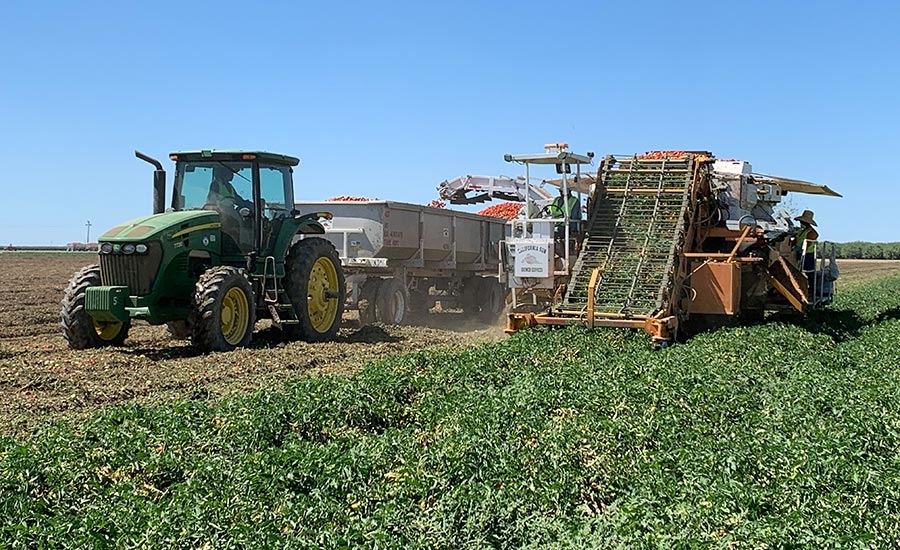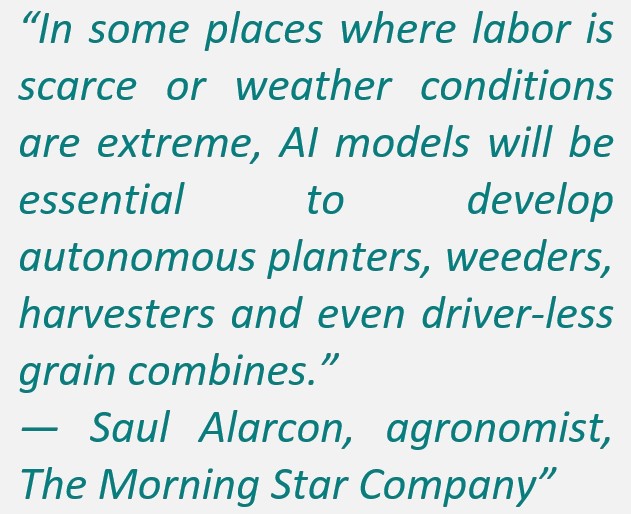Respect for your privacy is our priority
The cookie is a small information file stored in your browser each time you visit our web page.Cookies are useful because they record the history of your activity on our web page. Thus, when you return to the page, it identifies you and configures its content based on your browsing habits, your identity and your preferences.
You may accept cookies or refuse, block or delete cookies, at your convenience. To do this, you can choose from one of the options available on this window or even and if necessary, by configuring your browser.
If you refuse cookies, we can not guarantee the proper functioning of the various features of our web page.
For more information, please read the COOKIES INFORMATION section on our web page.


 However, Morning Star found through field research that precise irrigation decisions can be fine-tuned by collecting daily vital environmental stress signals from the plant. “This process can detect stress much faster than the methods mentioned previously (almost real-time) thus aiding in the rapid detection and prevention of unpredictable yield limiting factors before we can visually detect it,” Alarcon explains.
However, Morning Star found through field research that precise irrigation decisions can be fine-tuned by collecting daily vital environmental stress signals from the plant. “This process can detect stress much faster than the methods mentioned previously (almost real-time) thus aiding in the rapid detection and prevention of unpredictable yield limiting factors before we can visually detect it,” Alarcon explains. AI could help us to estimate harvest times while predicting yields more accurately. For example, says Alarcon, preliminary data has shown that when growers have low plant water stress index levels (PWSI) the possibility to have above average yields increases significantly. He says that PWSI information therefore could be used in the future to estimate yields thus aiding in the prediction of possible crop shortages. Similarly, the smart integration of aerial images might help in the planning of harvest schedules that could assist in the effective coordination of a continuous and steady stream of incoming fruit for factories.
AI could help us to estimate harvest times while predicting yields more accurately. For example, says Alarcon, preliminary data has shown that when growers have low plant water stress index levels (PWSI) the possibility to have above average yields increases significantly. He says that PWSI information therefore could be used in the future to estimate yields thus aiding in the prediction of possible crop shortages. Similarly, the smart integration of aerial images might help in the planning of harvest schedules that could assist in the effective coordination of a continuous and steady stream of incoming fruit for factories.



























